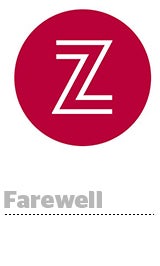 Here’s today’s AdExchanger.com news round-up… Want it by email? Sign up here.
Here’s today’s AdExchanger.com news round-up… Want it by email? Sign up here.
Passing Review
Google’s Zagat saga came to an end on Monday when the tech giant agreed to sell the restaurant reviewer to startup restaurant guide The Infatuation, reports The New York Times. Terms of the deal weren’t disclosed. Google bought Zagat for $150 million seven years ago and used it to counter local review services like Yelp – with Zagat taking premium position atop Google search results. But with that work done (and with heightened regulatory scrutiny over media ownership), Google is ready to ditch its toehold in the restaurant review business. More.
Writing On The Wall
Big social platforms have stopped short of embracing RTB in order to retain price and data controls, but Twitter signaled last year that it will buy the whole hog. Ad Age gives a progress report on integrations with buying platforms like The Trade Desk and agencies like Omnicom, WPP and Dentsu Aegis. It’s still early, but it seems Twitter is “willing to give up some of that control if it means a return to growth,” Garett Sloane writes. A brand can bring its data to Facebook or Snapchat and use it to optimize a campaign for, say, gardening enthusiasts. A key difference is that that campaign wouldn’t expand the brand’s data about gardeners on Facebook or Snapchat. More.
The Scarlet Label
A startup from publishing industry vets L. Gordon Crovitz and Steve Brill will offer green, yellow and red “nutrition labels” for some 7,500 news brands, based on their ownership disclosure and journalism quality. The company’s evaluations of journalistic organizations will then be licensed to platforms and ad buyers. “NewsGuard’s business model is to charge the digital platforms, which created the problem in the first place, so that their users can access the ratings and nutrition labels, and to charge advertisers to keep their ads off fake news and propaganda sites,” Crovitz writes in The Wall Street Journal. NewsGuard won’t charge publishers. More.
Trust The Good Book
Facebook is pitching a brand-safe video package for buyers, asking them to commit $750,000 up front in exchange for three months of access to premium video inventory. The catch? Facebook gets to decide what ‘premium’ means and doesn’t provide information about where the ads are running. The program also lacks some of the finer targeting parameters advertisers are used to on Facebook, like buying against interests, location and gender. The program is a beta test of Facebook’s Watch video hub and takes after the Google Preferred program on YouTube. Brands are desperate for safe, premium video inventory, but will they cede more control over their ad spend to Facebook to get it? Digiday has more.
But Wait, There’s More!
- Here Come The Fake Videos, Too – NYT
- Big Tech Backlash? – eMarketer
- Facebook Grapples With Brand Safety – Axios
- LiveRamp Launches IdentityLink For TV – release
- To Accelerate Digital, Prioritize Culture – Forrester
- Is Facebook Winning Against Ad Fraud? – Adweek
- How Hearst Optimizes Its Paywall – Digiday
You’re Hired!
- Quantcast Names Meredith Long CRO Of N. America. – release
- Pixability Hires David George As CEO – release











